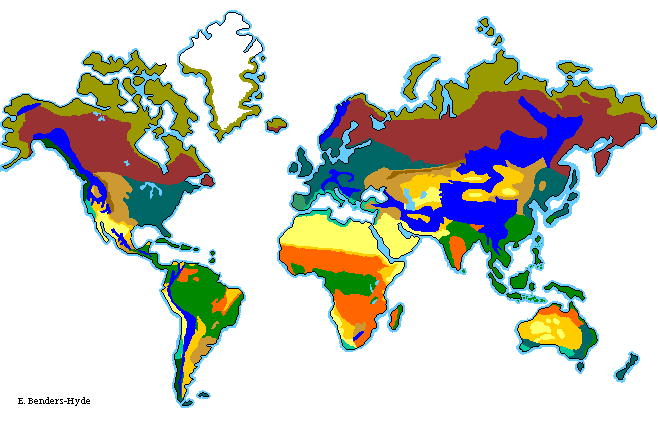Skylar, Higgins, & Boone (2007): Strategies for Adapting WebQuests for Students with Learning Disabilities
“Research suggests that students with disabilities who use technology are more highly motivated and complete more assignments when using the technology” Sylar et al 2007, p. 3). Therefore WebQuests can be used as a motivational tool for students and can be easily modified to meet the needs of students with disabilities. In my own classrooms, I would use the graphic organizers when completing WebQuests in order to keep students thoughts organized and on task.
Sox & Rubinstein-Avila (2009): Webquests for English-Language Learners: Essential Elements for Design
“One of the main purposes for using Webquests is, after all, to narrow the search to maximize the relevance, comprehensible input, and efficiency of students’ Internet researches” (Sox & Rubinstein-Avila 2009, p. 46). This helps English Language Learners who have difficultly generating keywords to search. Also, there are no distracting advertisements surrounding the new information being read.
| Click on the image to go to a WebQuest website for all grade levels. |
 |
| Click on the image to go to a WebQuest specifically for Biomes. |
Donald J Leu, PhD provided many examples of how to implement Internet into your curriculum and classroom. His quick videos can be found at http://ctell.uconn.edu/canter/canter_video.cfm. I was particularly interested incorporating Internet workshop into my instruction when I have a classroom of my own. According to Leu, “Internet workshop develops content knowledge, strategies for using network information sources, as well as student collaboration.” The first step for incorporating Internet workshop is to locate sites. This can be done by using central directories in your curriculum area or by using pre-screened search engines, such as Yahooligans.com or Askjeeveskids.com.
 |
| Click here to go to yahooligans.com |
| Click here to go to Askjeeveskids.com |
The fourth step of Internet workshop is to share and exchange information. This can be a short workshop session at the end of the week celebrating the accomplishments of each student. Leu suggested asking more open-ended questions that require multiple answers and perspectives. I think this is necessary to have students become critical readers and writers on the Internet. The literacies involved in Internet workshops are navigating websites, analyzing information, as well as searching topics and comparing multiple perspectives.
Hi Sarah,
ReplyDeleteI too liked the idea of internet workshop best. I can see how it would very effective if used regularly. The quote you provided stated how internet workshop helps develop content knowledge about a subject. How true and how necessary! In thinking about how important this is, I realize that all of the tools we have examined so far - from twitter to wikis to digital storytelling...etc. ... all of these mediums allow us to help build critical content knowledge in kids. It might be through exposure to various texts and internet sources of events and places or people or it might be through a visual representation or even through discussion facilitated through a social networking site. You talked about your family member being in Africa - and even as you exchange communication and you are looking at photos, you are building your own knowledge of Africa. Pretty cool.
Sarah, I also am intrigued by the Internet Workshop. I think it would work nicely in a classroom that already uses a workshop approach teaching reading and writing. In many ways, I am sure, teachers engage students with something similar—but I think kids could really benefit from the known structure of the Internet Workshop. Well done!
ReplyDeleteSarah,
ReplyDeleteYour blog was very well organized, and I liked the way you began your thoughts with quotes. The quotes added in here were essential in explaining the main points of your ideas. I agree that using technology in the classroom has its benefits, but if anything, it motivates. Getting students motivated in the classroom may be the hardest part so it is a great way to get then intrigued!
Alex Hayes
Like you, I quickly took to the idea of Internet Workshop. It seems like such an authentic way to get kids exploring and researching content! After all, we as adults often do the same thing. We have a topic we want to know more about (e.g., information on the movie "The King's Speech), so we search for good websites to read to inform ourselves (e.g., IMDB.com). The "activity" in the Internet Workshop model is really scaffolding the self-questioning we ultimately want student to do. And the sharing culmination multiplies what every student learns by exposing them to the research findings of their peers. It all makes such good sense!
ReplyDeleteI checked out your link to the biome webquest, too. I love how it frames the research with a relevant context: "The Environmental Protection Agency in looking for causes, has appointed you and your group of experts to study the problem. Your job as a botanist, zoologist, climatologist and a chemist is to plan a course of action that will identify the problems and recommend possible solutions." This gives kids a great answer to the "why does this matter?" question they sometimes wonder and ask. Cool stuff!